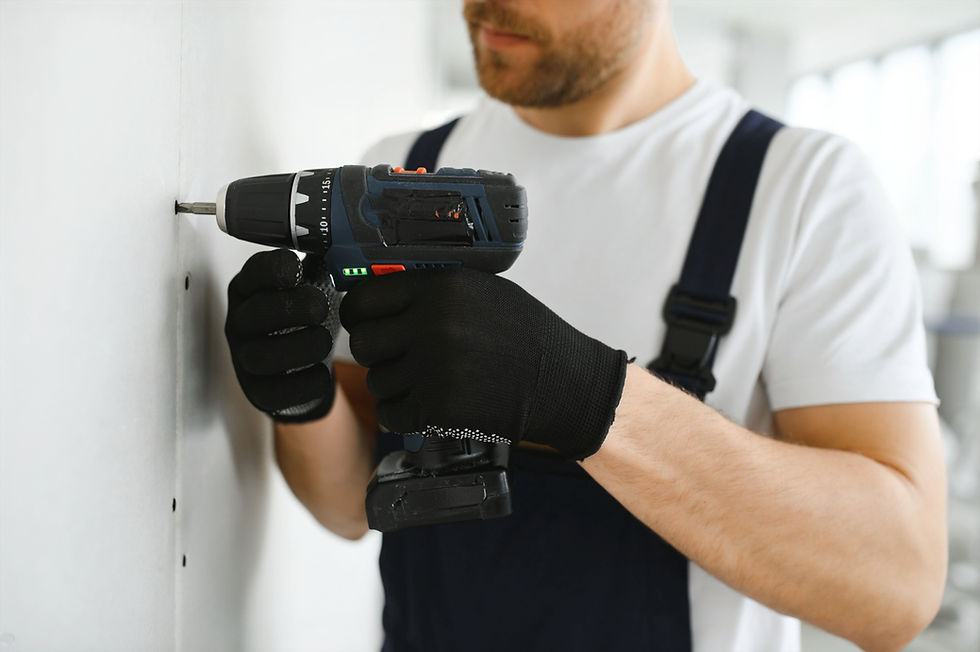Drywall Screws Guide: How to Choose the Right Fastener
- Ирина Колб

- Jun 16, 2025
- 2 min read
Updated: Jun 26, 2025
Why the Right Drywall Screw Matters
Choosing the right drywall screw is just as important as the fastening layout — we explained it in our article “What’s the Best Drywall Installation Method?”. The wrong fastener can lead to cracks, weak adhesion, or corrosion — especially in tricky areas.
This guide outlines 5 common drywall fastening scenarios with screw recommendations and reliable brands available in the U.S.

Attaching Drywall to Wood Studs
Use: Coarse thread drywall screws
Length: 1-1/4" – 2"
Examples:
Coarse threads bite into wood securely and don’t require pre-drilling. This speeds up the installation and minimizes the risk of pullout.
Attaching Drywall to Metal Studs
Use: Fine thread drywall screws
Length: 1-1/4" – 1-5/8"
Examples:
Fine threads grip thin metal without stripping or loosening over time. This ensures a clean, tight connection.
Installing Two Layers of Drywall
Use: Standard drywall screws (longer length)
Length: 1-5/8" – 2-1/2"
Examples:
Screws should be 2.5 to 3 times the thickness of one sheet to anchor both layers securely into studs or track.
Cement Board in Bathrooms or Wet Areas
Use: Cement board screws (galvanized or stainless steel)
Length: 1-5/8" – 2-1/4"
Examples:
Backer-On 1-5/8 in.
Grip-Rite 2 in.
SPAX 1-3/4 in.
Standard screws rust quickly in wet conditions. Cement board screws resist corrosion, stay strong in dense material, and avoid damaging the board.
Fastening into Concrete or Cinder Block
Use: Concrete screwsLength: 1-3/4" – 2-1/4"Note: Pre-drilling is required
Examples:
Tapcon 3/16 in. x 1-3/4 in.
Deckmate 1/4 in. x 2 in.
Hillman 2 in.
You can’t fasten securely to solid surfaces without pre-drilling. Concrete screws are designed to anchor tightly into masonry.

Before You Drill: Pick the Right Length
When choosing drywall screws, don’t just focus on thread type — make sure the length matches the th ickness of your drywall. Using screws that are too short can lead to weak holds or popped fasteners, while excessively long screws may split studs or slow down the job.
Here’s a general rule of thumb:
1-1/4" screws are ideal for 1/2" thick drywall — the most common size in residential projects.
1-5/8" to 2" screws are best for single-layer drywall with heavier boards or tougher studs.
2-1/2" or longer should be used when attaching two layers of drywall or special soundproof assemblies.
Always match screw length to drywall thickness — it’s a small detail that ensures strong, reliable installation from the start.
What to Remember
Fasteners are not a small detail — they’re the foundation of durable drywall work. Choosing the right drywall screws helps speed up the job, reduce cracks, and prevent future rework.
At Tools and Hands, we know that great results start with small decisions. And choosing the right screw for the job is the first step to a solid, long-lasting build.


